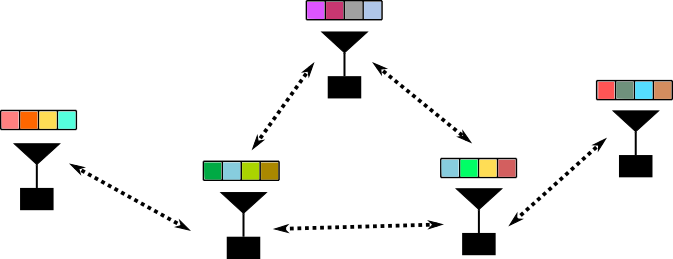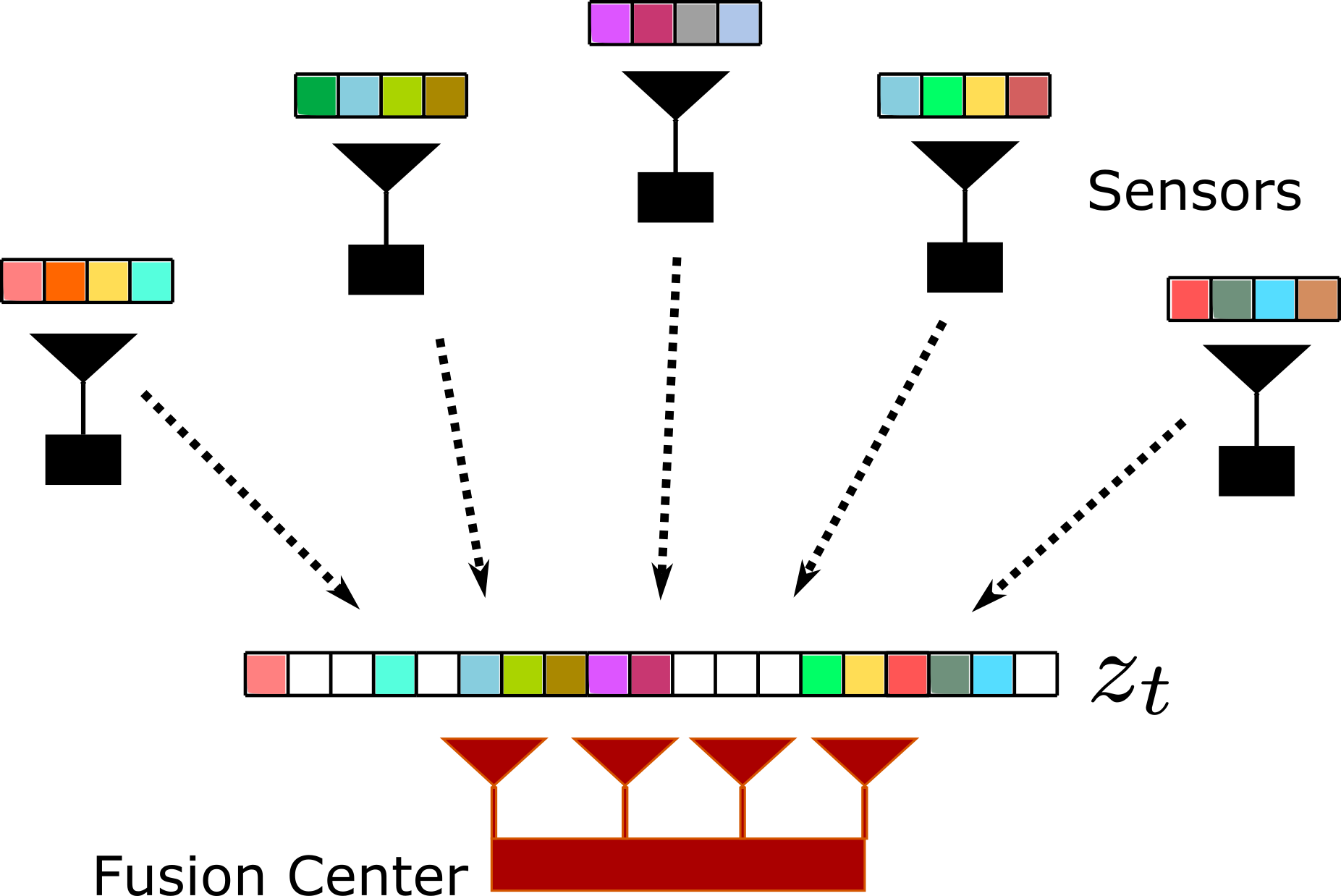Research
Recent Projects
Publications
M. Rao, S. Rini, & A. Goldsmith, “Distributed Convex Optimization with Limited Communications,” ICASSP, 2019
M. Rao, N. Farsad, & A. Goldsmith, “Variable Length Joint Source-Channel Coding of Text Using Deep Neural Networks,” SPAWC, 2018
N. Farsad, M. Rao, & A. Goldsmith, “Deep Learning for Joint Source-Channel Coding of Text,” ICASSP, 2018
M. Chowdhury, M. Rao, & A. Goldsmith, “Direction Finding Using Non-coherent Measurements in Large Antenna Arrays,” Asilomar, 2017
M. Rao, T. Javidi, Y.C. Eldar, & A. Goldsmith, “Fundamental Estimation Limits in Autoregressive Processes with Compressive Measurements,” ISIT, 2017
M. Rao, T. Javidi, Y.C. Eldar, & A. Goldsmith, “Estimation in Autoregressive Processes With Partial Information,” ICASSP, 2017
N. Farsad, Y. Murin, M. Rao, & A. Goldsmith, “On the Capacity of Diffusion-Based Molecular Timing Channels With Diversity,” Asilomar, 2016
M. Rao, A. Kipnis, T. Javidi, Y.C. Eldar, & A. Goldsmith, “System Identification from Partial Samples: Non-Asymptotic Analysis,” Conference on Decision and Control, 2016
M. Chowdhury, M. Rao, Y. Zhao, T. Javidi & A. Goldsmith, “Benefits of Storage Control for Wind Power Producers in Power Markets,” IEEE Transactions on Sustainable Energy, 2016
G. Malysa, M. Hernaez, I. Ochoa, M. Rao, K. Ganesan & T. Weissman, “QVZ: lossy compression of quality values,” BMC Bioinformatics, 2015
M. Rao, M. Chowdhury, Y. Zhao, T. Javidi & A. Goldsmith, “Value of Storage for Wind Power Producers in Forward Power Markets,” American Control Conference, 2015
M. Rao, F. J. Lopez-Martinez, M. S. Alouini & A. Goldsmith, “MGF Approach to the Analysis of Generalized Two-Ray Fading Models,” IEEE Transactions on Wireless Communications, 2015
M. Rao, F. J. Lopez-Martinez, M. S. Alouini & A. Goldsmith, “MGF Approach to the Capacity Analysis of Generalized Two-Ray Fading Models,” IEEE International Conference on Communications, 2015
M. Rao, F. J. Lopez-Martinez & A. Goldsmith, “Statistics and System Performance Metrics for the Two Wave with Diffuse Power Fading Model,” CISS, 2014.
Other Projects and Reports
Learning with Domain Adaptation
Worked with Farzan Farnia and Nishal Shah on extending results on fundamental performance bounds while performing statistical learning with domain adaptation. This was part of a course project for EE377: Information Theory and Statistics with Prof. John Duchi.Adapting Reinforcement Learning Algorithms to Episodic Learning of POMDPs
Worked with Stephen Ragain on learning the state and model of a partially observed process. Course project for MS&E 338: Reinforcement Learning with Prof. Ben Van Roy.cvx_fit: From Data to a Convex Model
Worked with Alon Kipnis and Mainak Chowdhury on implementing an algorithm that fits a piecewise linear convex function to any input convex function for use in disciplined convex programming. Course project for EE364B: Convex Optimization with Prof. Stephen Boyd.Stability and Hopf Bifurcation Analysis of the Delay Logistic Equation
Worked with Preetish and Prof. Gaurav Raina on characterizing non-linear population dynamics.Altruism and Delay Tolerant Networks
Worked with Carlos Bermejo and Prof. Pan Hui at TU-Berlin and T-labs on studying the feasibility of delay tolerant networksMachine Learning Techniques in Non-Linear Receivers for Interference Mitigation
Worked with Prof. Giridhar on using clustering techniques to model interference in cellular communications.


